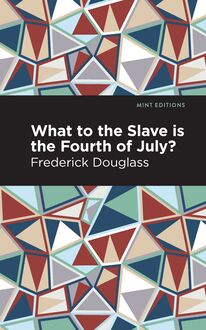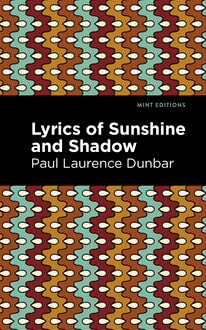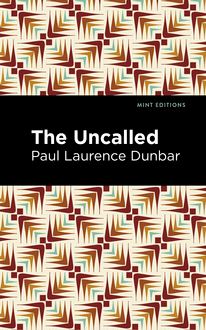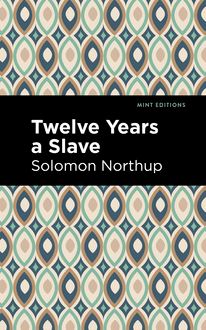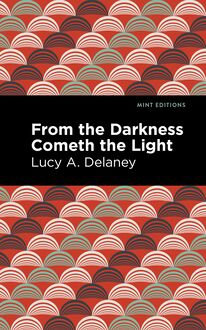-
 Univers
Univers
-
 Ebooks
Ebooks
-
 Livres audio
Livres audio
-
 Presse
Presse
-
 Podcasts
Podcasts
-
 BD
BD
-
 Documents
Documents
-
- Cours
- Révisions
- Ressources pédagogiques
- Sciences de l’éducation
- Manuels scolaires
- Langues
- Travaux de classe
- Annales de BEP
- Etudes supérieures
- Maternelle et primaire
- Fiches de lecture
- Orientation scolaire
- Méthodologie
- Corrigés de devoir
- Annales d’examens et concours
- Annales du bac
- Annales du brevet
- Rapports de stage
La lecture à portée de main
Vous pourrez modifier la taille du texte de cet ouvrage
Découvre YouScribe en t'inscrivant gratuitement
Je m'inscrisDécouvre YouScribe en t'inscrivant gratuitement
Je m'inscrisEn savoir plus
Vous pourrez modifier la taille du texte de cet ouvrage
En savoir plus

Description
When two young people are given a life-changing opportunity they encounter moral and systemic challenges that are directly tied to their racial and economic backgrounds. In The Quest of the Silver Fleece, W.E.B. Du Bois confronts covert discrimination in contemporary America.
Cotton, also known as “silver fleece,” is still a prized possession in the early-twentieth century. It continues to generate massive profits that are barely distributed amongst its predominantly Black workforce. Zora is a child of the South, and Bles, is a man with Northern sensibilities—yet, they both feel the weight of oppression. Set in Alabama and Washington D.C., The Quest of the Silver Fleece examines the struggle for upward mobility and the compromises to sustain it.
As a sociologist, Du Bois explores the ongoing effects of racial inequality in both the North and South. With The Quest of the Silver Fleece, he highlights the glaring disparity between the white establishment and African American labor. It’s an explicit indictment of continued oppression in a post-slavery society.
With an eye-catching new cover, and professionally typeset manuscript, this edition of The Quest of the Silver Fleece is both modern and readable.
Sujets
Informations
| Publié par | Mint Editions |
| Date de parution | 26 janvier 2021 |
| Nombre de lectures | 0 |
| EAN13 | 9781513276144 |
| Langue | English |
| Poids de l'ouvrage | 3 Mo |
Informations légales : prix de location à la page 0,0500€. Cette information est donnée uniquement à titre indicatif conformément à la législation en vigueur.
Extrait
The Quest of the Silver Fleece
W.E.B. Du Bois
The Quest of the Silver Fleece was first published in 1911.
This edition published by Mint Editions 2020.
ISBN 9781513271149 | E-ISBN 9781513276144
Published by Mint Editions®
minteditionbooks.com
Publishing Director: Jennifer Newens
Design & Production: Rachel Lopez Metzger
Project Manager: Micaela Clark
Typesetting: Westchester Publishing Services
T O O NE
whose name may not be written but to whose tireless faith the shaping of these cruder thoughts to forms more fitly perfect is doubtless due, this finished work is herewith dedicated
C ONTENTS N OTE FROM THE A UTHOR I. D REAMS II. T HE S CHOOL III. M ISS M ARY T AYLOR IV. T OWN V. Z ORA VI. C OTTON VII. T HE P LACE OF D REAMS VIII. M R . H ARRY C RESSWELL IX. T HE P LANTING X. M R . T AYLOR C ALLS XI. T HE F LOWERING OF THE F LEECE XII. T HE P ROMISE XIII. M RS . G REY G IVES A D INNER XIV. L OVE XV. R EVELATION XVI. T HE G REAT R EFUSAL XVII. T HE R APE OF THE F LEECE XVIII. T HE C OTTON C ORNER XIX. T HE D YING OF E LSPETH XX. T HE W EAVING OF THE S ILVER F LEECE XXI. T HE M ARRIAGE M ORNING XXII. M ISS C AROLINE W YNN XXIII. T HE T RAINING OF Z ORA XXIV. T HE E DUCATION OF A LWYN XXV. T HE C AMPAIGN XXVI. C ONGRESSMAN C RESSWELL XXVII. T HE V ISION OF Z ORA XXVIII. T HE A NNUNCIATION XXIX. A M ASTER OF F ATE XXX. T HE R ETURN OF Z ORA XXXI. A P ARTING OF W AYS XXXII. Z ORA ’ S W AY XXXIII. T HE B UYING OF THE S WAMP XXXIV. T HE R ETURN OF A LWYN XXXV. T HE C OTTON M ILL XXXVI. T HE L AND XXXVII. T HE M OB XXXVIII. A TONEMENT
N OTE
He who would tell a tale must look toward three ideals: to tell it well, to tell it beautifully, and to tell the truth.
The first is the Gift of God, the second is the Vision of Genius, but the third is the Reward of Honesty.
In The Quest of the Silver Fleece there is little, I ween, divine or ingenious; but, at least, I have been honest. In no fact or picture have I consciously set down aught the counterpart of which I have not seen or known; and whatever the finished picture may lack of completeness, this lack is due now to the story-teller, now to the artist, but never to the herald of the Truth.
N EW Y ORK C ITY
August 15, 1911
T HE A UTHOR
I
D REAMS
Night fell. The red waters of the swamp grew sinister and sullen. The tall pines lost their slimness and stood in wide blurred blotches all across the way, and a great shadowy bird arose, wheeled and melted, murmuring, into the black-green sky.
The boy wearily dropped his heavy bundle and stood still, listening as the voice of crickets split the shadows and made the silence audible. A tear wandered down his brown cheek. They were at supper now, he whispered—the father and old mother, away back yonder beyond the night. They were far away; they would never be as near as once they had been, for he had stepped into the world. And the cat and Old Billy—ah, but the world was a lonely thing, so wide and tall and empty! And so bare, so bitter bare! Somehow he had never dreamed of the world as lonely before; he had fared forth to beckoning hands and luring, and to the eager hum of human voices, as of some great, swelling music.
Yet now he was alone; the empty night was closing all about him here in a strange land, and he was afraid. The bundle with his earthly treasure had hung heavy and heavier on his shoulder; his little horde of money was tightly wadded in his sock, and the school lay hidden somewhere far away in the shadows. He wondered how far it was; he looked and harkened, starting at his own heartbeats, and fearing more and more the long dark fingers of the night.
Then of a sudden up from the darkness came music. It was human music, but of a wildness and a weirdness that startled the boy as it fluttered and danced across the dull red waters of the swamp. He hesitated, then impelled by some strange power, left the highway and slipped into the forest of the swamp, shrinking, yet following the song hungrily and half forgetting his fear. A harsher, shriller note struck in as of many and ruder voices; but above it flew the first sweet music, birdlike, abandoned, and the boy crept closer.
The cabin crouched ragged and black at the edge of black waters. An old chimney leaned drunkenly against it, raging with fire and smoke, while through the chinks winked red gleams of warmth and wild cheer. With a revel of shouting and noise, the music suddenly ceased. Hoarse staccato cries and peals of laughter shook the old hut, and as the boy stood there peering through the black trees, abruptly the door flew open and a flood of light illumined the wood.
Amid this mighty halo, as on clouds of flame, a girl was dancing. She was black, and lithe, and tall, and willowy. Her garments twined and flew around the delicate moulding of her dark, young, half-naked limbs. A heavy mass of hair clung motionless to her wide forehead. Her arms twirled and flickered, and body and soul seemed quivering and whirring in the poetry of her motion.
As she danced she sang. He heard her voice as before, fluttering like a bird’s in the full sweetness of her utter music. It was no tune nor melody, it was just formless, boundless music. The boy forgot himself and all the world besides. All his darkness was sudden light; dazzled he crept forward, bewildered, fascinated, until with one last wild whirl the elf-girl paused. The crimson light fell full upon the warm and velvet bronze of her face—her midnight eyes were aglow, her full purple lips apart, her half hid bosom panting, and all the music dead. Involuntarily the boy gave a gasping cry and awoke to swamp and night and fire, while a white face, drawn, red-eyed, peered outward from some hidden throng within the cabin.
“Who’s that?” a harsh voice cried.
“Where?” “Who is it?” and pale crowding faces blurred the light.
The boy wheeled blindly and fled in terror stumbling through the swamp, hearing strange sounds and feeling stealthy creeping hands and arms and whispering voices. On he toiled in mad haste, struggling toward the road and losing it until finally beneath the shadows of a mighty oak he sank exhausted. There he lay a while trembling and at last drifted into dreamless sleep.
It was morning when he awoke and threw a startled glance upward to the twisted branches of the oak that bent above, sifting down sunshine on his brown face and close curled hair. Slowly he remembered the loneliness, the fear and wild running through the dark. He laughed in the bold courage of day and stretched himself.
Then suddenly he bethought him again of that vision of the night—the waving arms and flying limbs of the girl, and her great black eyes looking into the night and calling him. He could hear her now, and hear that wondrous savage music. Had it been real? Had he dreamed? Or had it been some witch-vision of the night, come to tempt and lure him to his undoing? Where was that black and flaming cabin? Where was the girl—the soul that had called him? She must have been real; she had to live and dance and sing; he must again look into the mystery of her great eyes. And he sat up in sudden determination, and, lo! gazed straight into the very eyes of his dreaming.
She sat not four feet from him, leaning against the great tree, her eyes now languorously abstracted, now alert and quizzical with mischief. She seemed but half-clothed, and her warm, dark flesh peeped furtively through the rent gown; her thick, crisp hair was frowsy and rumpled, and the long curves of her bare young arms gleamed in the morning sunshine, glowing with vigor and life. A little mocking smile came and sat upon her lips.
“What you run for?” she asked, with dancing mischief in her eyes.
“Because—” he hesitated, and his cheeks grew hot.
“I knows,” she said, with impish glee, laughing low music.
“Why?” he challenged, sturdily.
“You was a-feared.”
He bridled. “Well, I reckon you’d be a-feared if you was caught out in the black dark all alone.”
“Pooh!” she scoffed and hugged her knees. “Pooh! I’ve stayed out all alone heaps o’ nights.”
He looked at her with a curious awe.
“I don’t believe you,” he asserted; but she tossed her head and her eyes grew scornful.
“Who’s a-feared of the dark? I love night.” Her eyes grew soft.
He watched her silently, till, waking from her daydream, she abruptly asked:
“Where you from?”
“Georgia.”
“Where’s that?”
He looked at her in surprise, but she seemed matter-of-fact.
“It’s away over yonder,” he answered.
“Behind where the sun comes up?”
“Oh, no!”
“Then it ain’t so far,” she declared. “I knows where the sun rises, and I knows where it sets.” She looked up at its gleaming splendor glinting through the leaves, and, noting its height, announced abruptly:
“I’se hungry.”
“So’m I,” answered the boy, fumbling at his bundle; and then, timidly: “Will you eat with me?”
“Yes,” she said, and watched him with eager eyes.
Untying the strips of cloth, he opened his box, and disclosed chicken and biscuits, ham and corn-bread. She clapped her hands in glee.
“Is there any water near?” he asked.
Without a word, she bounded up and flitted off like a brown bird, gleaming dull-golden in the sun, glancing in and out among the trees, till she paused above a tiny black pool, and then came tripping and swaying back with hands held cupwise and dripping with cool water.
“Drink,” she cried. Obediently he bent over the little hands that seemed so soft and thin. He took a deep draught; and then to drain the last drop, his hands touched hers and the shock of flesh first meeting flesh startled them both, while the water rained through. A moment their eyes looked deep into each other’s—a timid, startled gleam in hers; a wonder in his. Then she said dreamily:
“We’se known us all our lives, and—before, ain’t we?”
He hesitated.
“Ye—es—I reckon,” he slowly returned. And then, brightening, he asked gayly: “And we’ll be friends always, won’t we?”
“Yes,” she said at last, slowly and solemnly, a
-
 Univers
Univers
-
 Ebooks
Ebooks
-
 Livres audio
Livres audio
-
 Presse
Presse
-
 Podcasts
Podcasts
-
 BD
BD
-
 Documents
Documents
-
Jeunesse
-
Littérature
-
Ressources professionnelles
-
Santé et bien-être
-
Savoirs
-
Education
-
Loisirs et hobbies
-
Art, musique et cinéma
-
Actualité et débat de société
-
Jeunesse
-
Littérature
-
Ressources professionnelles
-
Santé et bien-être
-
Savoirs
-
Education
-
Loisirs et hobbies
-
Art, musique et cinéma
-
Actualité et débat de société
-
Actualités
-
Lifestyle
-
Presse jeunesse
-
Presse professionnelle
-
Pratique
-
Presse sportive
-
Presse internationale
-
Culture & Médias
-
Action et Aventures
-
Science-fiction et Fantasy
-
Société
-
Jeunesse
-
Littérature
-
Ressources professionnelles
-
Santé et bien-être
-
Savoirs
-
Education
-
Loisirs et hobbies
-
Art, musique et cinéma
-
Actualité et débat de société
- Cours
- Révisions
- Ressources pédagogiques
- Sciences de l’éducation
- Manuels scolaires
- Langues
- Travaux de classe
- Annales de BEP
- Etudes supérieures
- Maternelle et primaire
- Fiches de lecture
- Orientation scolaire
- Méthodologie
- Corrigés de devoir
- Annales d’examens et concours
- Annales du bac
- Annales du brevet
- Rapports de stage

